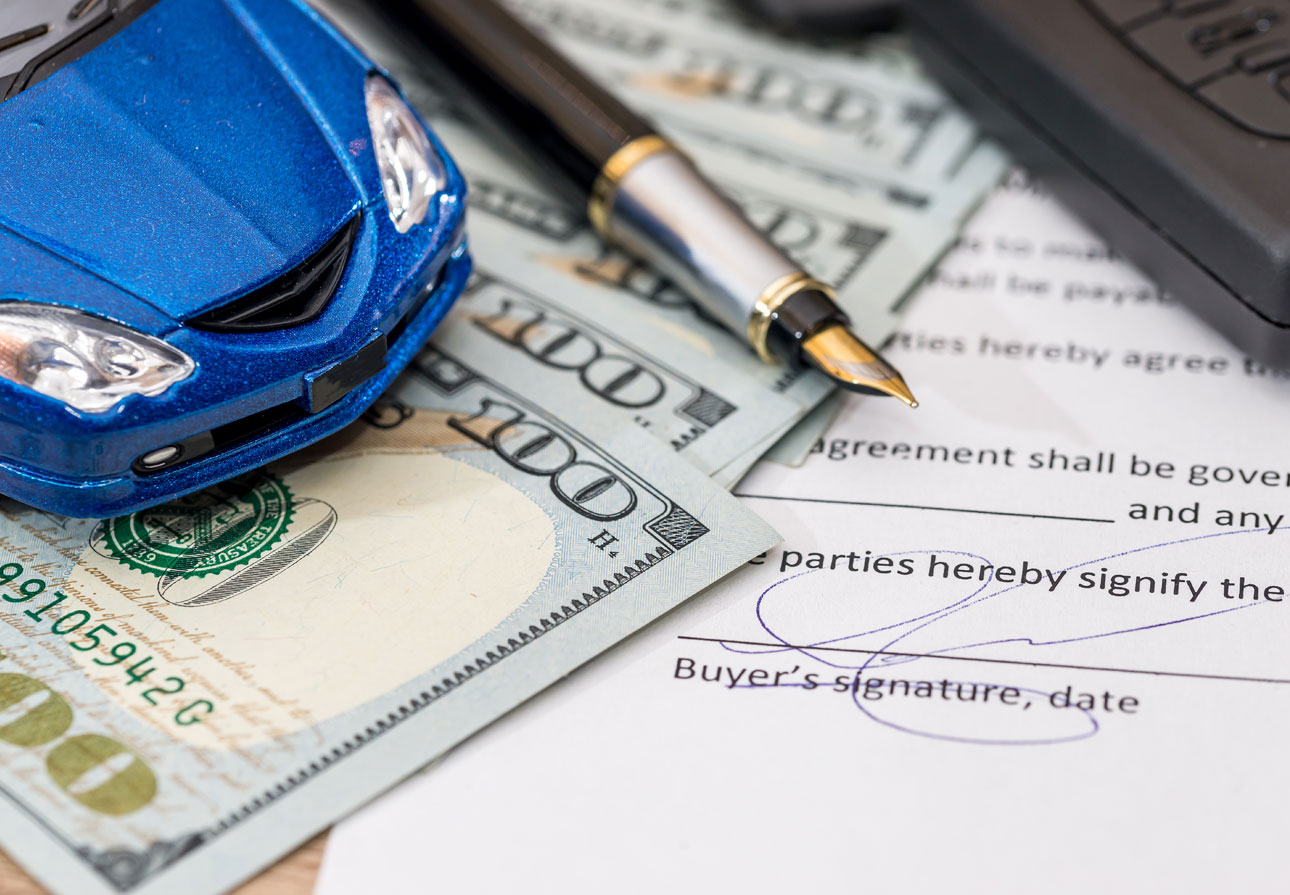
Key Factors That Affect Auto Loan Rates
When you purchase a new or used car from a dealer, unless you’re paying the total cost upfront, you’ll finance your car through an auto loan. An auto loan is made up of both the principal payment, which is the original amount of the car, plus the interest rate and fees.
The interest rate plus the additional fees are sometimes referred to as the auto loan rate, because it is calculated as a percentage of the principal amount of the car and added on to your auto loan. An auto loan rate can vary, and you might be wondering why. So, that’s what we’re going to take a look at in this article:
How Do Auto Loan Interest Rates Work?
An auto loan rate, also called an APR (annual percentage rate) is a percentage rate that is added on to the total amount of the purchase price of your car and includes both the interest rate and any fees for the loan. That is why a car loan is more than the purchase price of the vehicle. These rates can vary wildly from institution to institution and are often lower at credit unions than banks.
How Much Does Interest Rate Affect Car Payments?
Though auto loan rates are usually single digit percentages, small variations can make a huge difference in what you end up paying for your car. The difference between 4% vs 2% can mean thousands of dollars in additional payments. These payments are spread out over the length of your car loan, but paying an extra $10, $40, or even $100 each month can quickly add up.
That’s why you want to try and find the lowest auto loan rate possible. But it can be a little tricky to find the lowest APR when they vary so much. Understanding what influences these rates, however, can help you find the lowest possible auto loan rate and help you save money.
What Determines Your Auto Loan Rate?
There are several factors that determine the APR for your auto loan, some of which are within your control, while others are not. Let’s take a look at the top three factors:
Your Credit History:
Your credit history, including your credit score, plays a major factor in determining your auto loan rate. Lenders rely on your credit history to determine if you are financially ready for the responsibility of making on-time, monthly payments. The lower your credit score, the higher your auto loan rate will be. So, one way to ensure lower auto loan rates is to work on getting financially fit and improving your credit score.
The Details of the Purchase
There are many factors to an auto loan including the purchase price of the car, whether it’s new or used, your down payment, and the length of your loan terms. Each of these factors can influence your auto loan rate. In general, a new car with a significant down payment and short loan terms will result in lower auto loan rates and vice versa.
Why Are Used Car Interest Rates Higher?
Used car purchases carry higher interest rates because they carry more risk for the lenders due to the following factors:
- Faster Depreciation: Used cars depreciate more unpredictably depending on how old the vehicle is and the mileage.
- Lower Collateral Value: In the situation where the borrower defaults on their loan, the lender has less to recover from selling the vehicle.
- Shorter Warranty Periods: Odds are the used vehicle falls outside of the manufacturer’s warranty, leading to more necessary repairs, which can affect the borrower's ability to pay down the loan.
Inflation
Outside your control, auto loan rates rise and fall, and right now, they are at the highest they have been since 2009. While this might seem like a bad thing, it’s actually a sign of a healthy economy. Since you have no control over this, focus instead on improving your credit and saving up for a bigger down payment.
If you want a lower auto loan rate, plan accordingly by taking actions to improve your credit score, strengthen your credit history, and save for a down payment. When you're ready to purchase a car, be sure to work with a lender from a credit union, as credit unions have lower rates and come with additional benefits.
Does the Federal Interest Rate Affect Car Loans?
The Federal Reserve (the Fed) does not directly set the interest rates for auto loans, but they can have an indirect impact. Depending on the Fed’s decision on interest rates, individual lenders like banks, credit unions, and other financial institutions will adjust their rates accordingly.
What Happens When Interest Rates Change?
When the Fed changes the interest rates, auto loan rates usually follow, but not instantly or directly. Once the Fed sets the trend, lenders adjust their auto loan rates to stay in step with the overall financial environment. That change can take as little as a few days or a few weeks. If the Fed cuts rates, auto loan rates tend to go down. If the Fed raises rates, auto loan rates tend to go up.
How Does a Rate Change Affect My Purchase?
If you’ve already secured an auto loan, it was probably a fixed interest rate. Meaning, the rate you get when you sign the loan will stay the same for the entire term of the loan. So, your monthly payments won’t change if the market rises or falls later.
Auto loans are typically fixed rate because the terms of the loan are shorter (3 to 7 years) when compared to other loan types. Which means the lenders don’t need to adjust for any long-term rate shifts, and it makes payments predictable.
Why Does My Interest Payment Fluctuate?
There are rare exceptions to fixed-rate auto loans where the interest rate can change based on the market. They’re called variable or dynamic-rate loans. In most cases, if the auto loan has a changing rate, it’s not a standard auto loan. It could be tied to a line of credit or a lease-like agreement. If a lender is offering a variable-rate auto loan, make sure to read the terms and conditions closely. It’s not standard practice.
Securing An Auto Loan
If you want a lower auto loan rate, plan accordingly by taking actions to improve your credit score, strengthen your credit history, and save for a down payment. When you’re ready to purchase a car, be sure to work with a lender from a credit union, as credit unions have lower rates and come with additional benefits. At Community First, we offer different auto loan options to make car buying and refinancing easy.
Learn More About Auto Financing
- How to Qualify for a Car Loan
- How Much Car Can You Afford?
- How to Lower Your Car Payment
- Loan Terminology to Know
- Is it Best to Finance with a Dealer or Bank?
- RV Financing in Florida









